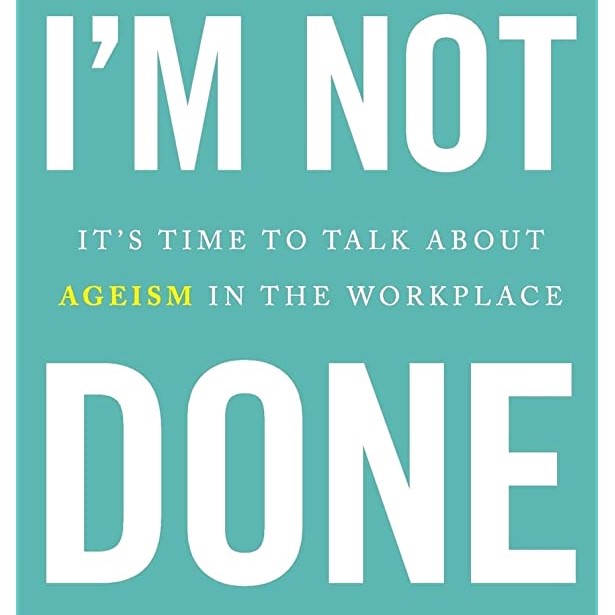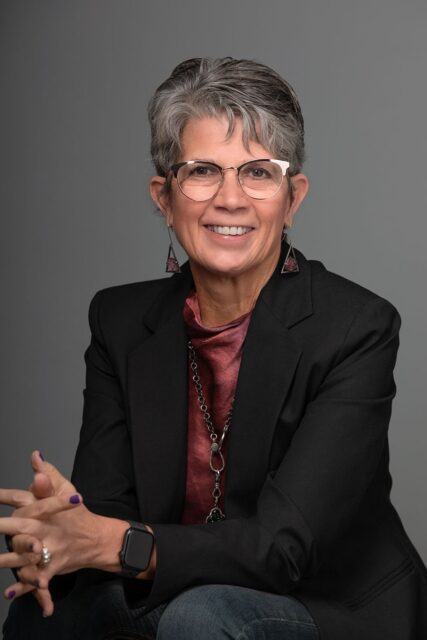Defeating Ageism: Career Advice for Landing a New Job Post-50

Sadly, the only thing harder than keeping your job past 50 is getting a new one, and yet that is a situation many women will face during their career. The statistics bear this out: women experience ageism more frequently than their male counterparts, whether it happens in their current job or when they are trying to land a new one.
According to a 2020 study conducted by WerkLabs, the data and insights arm of The Mom Project, significantly more women than men have experienced ageism in their professional lives, 62 percent of women versus 52 percent of men. The job search is also harder and longer for women over 50. While men over 50 who lost their jobs spent more weeks unemployed than men under 50, women over 50 had unemployment stints on average a whopping thirteen weeks longer than women under 50. That is almost three times as long as their male counterparts.
That is depressing – but it doesn’t mean we should give up – it just means (and we are used to this, aren’t we?) we just must work a little harder – and smarter.
Here are my top three tips to landing a new job post-50.
GET PAST THE ALGORITHMS TO GET A MEETING
When you are updating your resume, I strongly suggest you seek help! Getting a job today may very well be a whole new ballgame for many of us who haven’t been in the market for a while. Those of us who are over 50 tend to look for jobs far less frequently than those in their 20s, 30s and 40s, in part because we are more likely to be loyal and engaged employees. Sadly, most jobseekers over 50 are looking because they lost their job. But for whatever reason, the bottom line is, older workers are out of practice when it comes to looking for jobs!
In today’s job seeking world most resumes and applications are screened by artificial intelligence. Think of it like SEO for resumes. What this means is that before a human gets a chance to even find out how great you are, there is a good chance certain words/phrases in your resume may lock you out of any further conversation. This especially happens when we use words or phrases that AI equates with being older.
My advice? Don’t try to figure this out on your own.
Get professional help in preparing your resume or application. There are people who specialize in knowing what words the employer is likely screening for and there are clues in aplenty in the job description/posting and what words to avoid. You can find these professionals in places like LinkedIn or even, very affordably from crowd-sourced sites like Fiverr.com. If you do opt to go it alone just be sure you don’t emphasize words like seasoned or emphasize your deep experience by stating it as having 40 years of experience.” Believe me, as someone with 42 years of experience myself I know how valuable it is and would be to a potential employer, I just recommend that instead of expressing it in numbers, you instead choose words and descriptions that define what you have done and accomplished.

OWN YOUR AGE
When you do get to an interview or conversation stage, rather than trying to avoid questions about your age (such as the proverbial when did you graduate from University question) I personally have always found it useful to be very straightforward about my age – but only in the context of trying to underscore that with every birthday, came an opportunity to learn or new skill and gain valuable experience. It is up to you to help the interviewer understand the value of your wisdom and experience. I recommend that you make a list of the top 10 skills/experiences you have developed over your 3–4-decade career and be prepared to talk about them in ways that show how the organization or company you are trying to join would be better because of those experiences.
UNDERSTAND THE LIKELY BIAS OF THE INTERVIEWER
Too often when an interviewer sees someone with decades of experience, they see dollar signs and assume that the job candidate will be expensive. Or just as maddening, they will assume that the job seeker’s expectations are such that they would never settle for this job.
How do they know if they don’t ask you? It’s so maddening but don’t expect them to change, instead take matters into your own hands.
Your job is twofold.
First, you must fully understand the job and what it is worth to the organization.
Don’t assume that you will be paid based on your seniority/years of service. You should be paid what the job is worth, and it is up to you decide if you want that job at that salary. I know in my own case; I was willing to accept less money at the end of my career for an opportunity with greater flexibility and freedom. You should never take less than you are comfortable with, but just because you may be “worth” a certain salary, the job you are seeking may pay less. That’s not always easy to accept, but if there is a disconnect you will be better served by moving on to explore other opportunities.
Secondly, you must pre-emptively debunk those pre-conceived (often based on ageist stereotype) biases of the interviewer.
I have found that being very direct from the outset pays off. Saying something like “at this stage of my career I am so energized by being able to use my experience in managing complex crises to coaching others.” That immediately lets the interviewer know that not only will you bring value to the organization, but also that you would not be joining with expectations of a traditional “promotion every few years” career track which allows them to literally picture you in more roles within the organization. A statement like that (or whatever feels right for you) is both owning your age and showing the interviewer why you will bring unique wisdom, experience, and value to the organization.
Good Luck!
This guest post was authored by Patti Temple Rocks

Patti is the author of I’m Not Done: It’s Time to Talk About Ageism in the Workplace.
Bio: My first book, I’m Not Done: It’s Time to Talk About Ageism in the Workplace was ranked as one of the 9 books Every Professional Should Read in 2019 by INC Magazine and Kirkus Reviews said “Rocks writes succinctly but convincingly about the proliferation of age bias and its damaging, insidious, and demoralizing effects on businesses and employees alike. She makes a compelling argument and a spirited call to action against workplace age discrimination.”
The world has changed just a bit since 2019, so I wrote a second edition of my book called, I’m STILL Not Done because I am not, and ageism is still widespread. The impact of the pandemic, the “Great Resignation” have had a particularly damaging effect on older workers – especially, but not exclusively, on women and I knew I wanted to keep writing. Keep talking. Keep fighting for true age equity in the world of work.
My work and my story have been featured in Fast Company, Forbes, The Wall Street Journal. Inc. Magazine, CEO World, Market Watch, AARP Magazine, Chicago Tribune Syndicate, WTTW News Broadcast and whole lot of podcasts.
I’m STILL Not Done is available on Amazon and everywhere books are sold.
*******
Ms. Career Girl strives to provide valuable insights you can use. To see more from our columnists and guest authors, check these out! Or subscribe to our weekly email featuring our latest articles. We’re also present on Medium!


